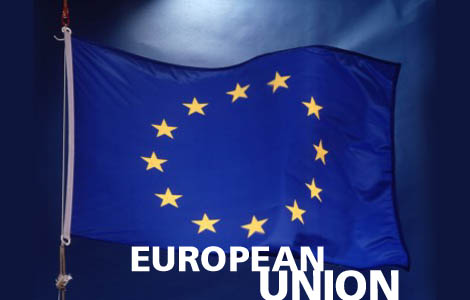ROUNDUP: EU praises Obama on Afghanistan, vows civilian surge
 Hluboka Castle, Czech Republic - The European Union on Friday welcomed US President Barack Obama's revised strategy for Afghanistan and vowed to contribute to a "civilian surge" with more money and more trainers.
Hluboka Castle, Czech Republic - The European Union on Friday welcomed US President Barack Obama's revised strategy for Afghanistan and vowed to contribute to a "civilian surge" with more money and more trainers.
"(We heard) a very important speech, a very important analysis ... we have a lot of points in common," the EU's top foreign policy official, Javier Solana, told the German Press Agency dpa on the sidelines of a meeting of the bloc's foreign ministers in the Czech Republic.
A first opportunity for the EU to hold direct talks with the Obama administration on how to deal with the Islamist extremist Taliban insurgency will come on Tuesday, when the sides are to take part in a conference on the region in The Hague.
Five days later, Obama himself will be in Prague for an EU-US summit.
In unveiling his strategic review of the West's seven-year war in Afghanistan, the US president vowed to intensify the fight against the Taliban and the al-Qaeda terrorist network in both Afghanistan and Pakistan, and announced that he was ordering the deployment of an extra 4,000 army trainers to Afghanistan, on top of the 17,000 additional soldiers already en route to the country.
But he also echoed the long-standing European view that military means alone would not eradicate terrorism.
"A campaign against extremism will not succeed with bullets or bombs alone," Obama said in Washington.
The president also emphasized the need both to strengthen "collective action" and to dramatically increase "civilian effort" - music to European ears.
"We had been waiting for that, and we were very pleased about what Obama had to say. It struck a fine balance between civil engagement on the one hand, and continued military presence on the other," said German Foreign Minister Frank-Walter Steinmeier.
However, Solana would not subscribe to the view that the Obama administration was shifting towards a European, more conciliatory, style of diplomacy.
"It is not a question of (the United States) moving closer to us, it is that we, together, are moving towards the same objectives," Solana told dpa.
Many European nations have been reluctant to commit more combat forces to Afghanistan, arguing that more efforts should be devoted to reconstruction.
Speaking earlier in the day, British Foreign Minister David Miliband, whose country is the second-largest contributor to NATO forces in Afghanistan, said Obama's announcement would "strike a very strong chord with Europeans."
"(Obama) will give real, concrete meaning to the idea that the Americans are looking at Afghanistan and Pakistan together, that they want to balance the civil and military aspects of their work, and support democratically-elected governments in both countries.
"On all three of those scales, the EU has an important role to play," Miliband said at the start of informal ministerial talks in a 13th century castle in Hluboka nad Vltavou, in the southern Czech Republic.
The meeting of EU foreign ministers was partly devoted to ways of boosting the EU's Afghan police training mission, which currently relies on just 177 trainers, but is expected to grow to 400 over the coming months.
France and Italy are among the EU's 27 that have military police forces. Both have said they plan to contribute more trainers to the bloc's EUPOL Afghanistan training mission.
Benita Ferrero-Waldner, the EU's external affairs commissioner, said the bloc may also announce more funds for Afghanistan at the conference in The Hague, which will be attended by more than 80 countries, including Pakistan and Iran.
"We are already preparing the conference in The Hague. So we will certainly contribute to a civilian surge," Ferrero-Waldner said.
During their talks in southern Bohemia, EU ministers also discussed latest developments in the Middle East and cautioned the nascent Israeli government against turning back from the country's commitment to a Palestinian state.
If the new Israeli government does not recognize the two-state solution, "then relations (with the EU) will become very, very difficult indeed," said the meeting's host, Czech Foreign Minister Karel Schwarzenberg.
Ministers also had a first round of talks on whether to invite Belarus President Alexander Lukashenko to a May 7 summit in Prague. The summit will officially launch the bloc's Eastern Partnership, an initiative designed to boost the bloc's ties with its ex-Soviet neighbours.
"(Belarus) has made some progress, but we would like to see more," said Ferrero-Waldner, adding that she only expected ministers to decide whether to include Lukashenko on the EU's guest list shortly before the summit is due to take place.
The two-day talks in the Czech Republic were taking place in Hluboka Castle, an imposing hill-top white structure that once belonged to the Schwarzenberg family. (dpa)